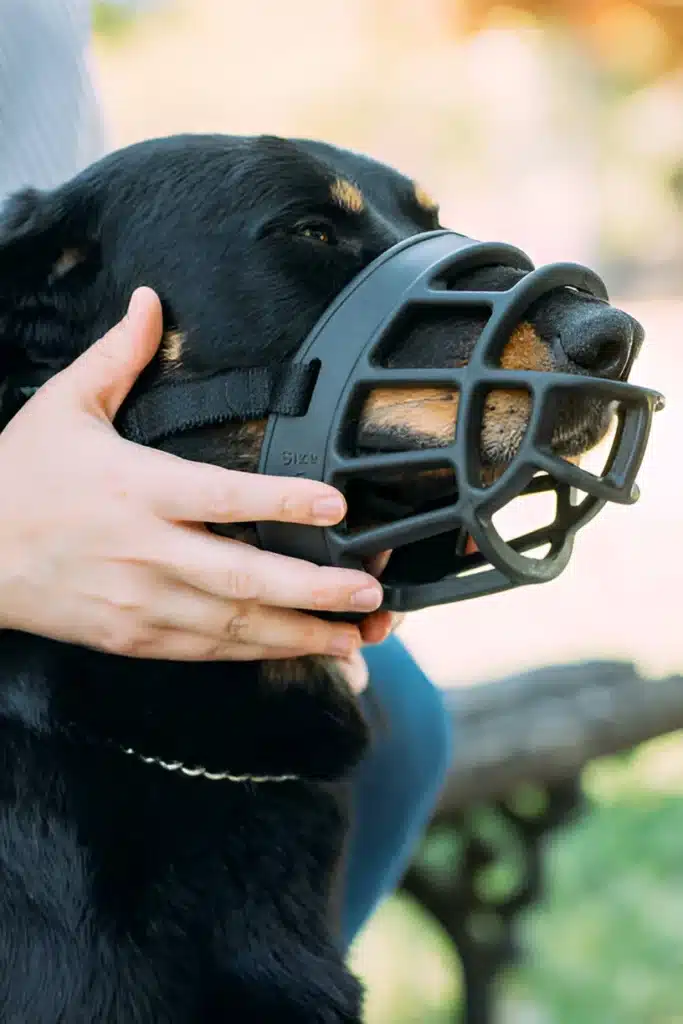From greeting people to guarding themselves, puppies can bark for a variety of reasons. However, it can be irritating if your puppy’s barking has become persistent.
Since barking is a natural behavior and a way for puppies to speak. It cannot be fully stopped. But you can teach your puppy to bark less.
The best methods for reducing your dog or puppy’s barking will be covered in this guide.
All can succeed, but you shouldn’t count on overnight miracles, and what works for one dog might not work for another.
It will take longer for your dog to learn alternative ways to interact or to become numb to the things that make them bark now if they have been engaging in the behavior for that long.
To select methods that might be most effective for your specific circumstance, it is essential to comprehend the reasons behind your dog’s barking. Also, we will offer you a detail guide How to train your dog not to bark
How to Train your Dog not to Dark – Step by Step

Once the cause of your dogs barking has been identified, you can begin training them to stop.
Since a puppy’s mental effect is close to that of a young child in certain ways, also, many of the same rules for support apply when teaching your puppy right behavior. More specifically: Further consult from an expert dog trainer who can teach you in-depth, how to train your dog not to bark.
- Give dependable guidelines and answers. Your dog will become confused if you react to excited barking in certain ways, such as positively at times and negatively at others. Make sure other family members respond the same way you do to the same behavior.
- Make sure no medical or psychological conditions are causing the behavior. Your puppy may whine or bark if it is afraid, unwell, or in pain. Make sure you’ve addressed any health or environmental concerns that might prevent your puppy from acting well.
- Make use of the right methods when training your puppy. Keep in mind that your puppy is still a baby and only learns from you. Steer clear of severe penalty. Positive support, such as praise and kindness, can help your puppy develop into a well-mannered, well-adjusted adult.
- Keep your emotions in check while you train. If your puppy cries when left alone, you might feel compelled to soothe it. This teaches the puppy that barking or whining is the most effective way to get attention because you are rewarding the behavior.
What causes Dogs to Dark at Guests?
Dogs may bark at guests for a variety of reasons, including fear or anxiety over a stranger entering their domain. They may simply be thrilled about the possibility of having someone new to make a fuss over. We usually react when they bark, regardless of the cause.

How to prevent Dogs from Barking at Guests
In order to prevent your dog from barking at guests, you should first identify the root cause of the behavior and then develop a training program that will help your dog begin to feel differently about guests and learn more appropriate greeting behaviors.
1. Learn why your dog is barking at guests.
To determine whether your dog is being territorial and acting in a “keep away or else” manner, or if they are afraid or frightened and want the frightening situation to end, observe their body language.
Or if they become overstimulated when visitors arrive and are left with nothing to do but bark!
2. Train your canine to approach a mat.
Learning to go to their bed or mat when a guest arrives is one of the simplest ways to stop a dog from barking at them.
Teaching them to use the doorbell or knocking as a signal to go to their mat is the most effective way to accomplish this.
Use a cue such as “ok” or “free” to get them out of bed, and teach them this through positive reinforcement training with treats and rewards.
3. Provide your dog with an alternative activity.
Your dog will remain on their bed longer and remain calmer when guests arrive if you use food toys like a puzzle toy, stuffed Kong, or a nice chew.
4. Inquire with your dog about actions besides barking.
If your dog is barking because they want to engage with your guests, teach them some basic obedience cues to help them understand that there are other ways to get your much-needed attention.
5. Prepare yourself to work hard during training.
Learning to keep a dog on their bed when guests arrive takes time. Training will involve creating fictitious situations.
You may have a recording of your doorbell that you can play on your phone to tell your dog to go to their mat.
Be patient, though, as they probably won’t be there for very long in the first place.
6. When your dog is quiet and at ease, give them a reward.
If dogs enjoy barking because it makes them feel good about themselves or because it attracts attention or affection, we should reward other, more appropriate behaviors, like not barking.
The key is avoidance.
Whether it’s your first week with a new puppy or you recently adopted an adult dog, keeping your dog active and engaged will help them avoid practicing barking.
Take note of the things your dog or puppy barks at, then follow the advice below to lessen how often they bark.
Although puppies will not outgrow barking, you can take proactive measures to lessen it and teach your dog other forms of communication. Or you can learn from experts on How to Train Your Dog Not to Bark.
Barking can be a very useful tool for figuring out what frightens or unnerves your dog.
It’s your responsibility as a pet parent to advocate for your dog. These include avoiding situations that cause them undue stress.
A dog that barks constantly is attempting to communicate with you that they have an unfulfilled need. Or that they need to be taken out of a frightening or stressful situation.

Ask for Professional Assistance
Numerous tools, such as spray collars, e-collars, and ultrasonic devices, are available to help control nuisance barking. Keep in mind that positive punishment is the foundation upon which all of these tools operate.
Whenever your dog lets out a bark, they suffer a negative outcome. Eventually, as your dog learns the association, the barking frequency should decrease.
These might seem like simple fixes for problematic barking. The only thing you do is fasten the collar. However, punishing your dog negatively impacts both their physical and mental well-being.
Additionally, it is no more successful than methods of positive reinforcement like the ones mentioned above. Also, if one dog is punished for barking at another, bark deterrents can be especially troublesome in a multi-dog home.
Please consult a Certified Professional Dog Trainer who will teach you How to Train Your Dog Not to Bark. Or an Animal Behaviorist before using these tools due to the possible harm they may cause.
Best practices for preventing your dog from barking at guests
- There are numerous additional ways to prevent your dog from barking at guests. These are our best suggestions.
- Control your surroundings by placing your dog in a puppy-proofed space, crate, playpen, or another room with an enjoyable activity to keep them occupied, such as playing a brain game, eating a delicious chew, or emptying a stuffed Kong.
- Place a pot of treats near the front door, and before your guests can bark, ask them to pick up a handful as they enter and throw them to your dog.
- As your guests sit down, ask them to toss some treats at your dog instead of making direct eye contact.
- When guests arrive, make sure your dog has had a good walk so they won’t be rambunctious.
- To help your dog relax, teach him the quiet cue.
- Don’t shout at your dog or tell them to stop barking because that will only make it worse. They might assume you’re joining in otherwise.
Make sure your puppy is socialized with people from an early age to prevent them from being afraid of strangers. In order to keep them from barking at guests, this is necessary.
Recognizing the Kind of Barking
One of the most important ways to stop dogs from barking nonstop is to understand why they do it. Once you understand the true meaning of your dog’s barking, you can figure out how to stop it.
First, territorial barking
When your dog barks at people, other animals, or anything that goes by your house or vehicle, they are expressing, “Hey! This is my domain.
Barking alarm:
This kind of barking occurs in reaction to unfamiliar sights and sounds. When they bark, they may appear rigid or advance. Alarm barking can occur anywhere you go, not only in your dog’s territory.
Demanding attention through barking:
When your dog wants something, such as food, a treat, a walk, or some playtime, they may bark.
Barking greetings:
This bark is your dog’s way of saying “Hello!” This kind of bark is easy to identify because your dog will appear at ease and may even wag their tail.
Consult with an expert dog trainer if you still need any support or guidance. A professional dog trainer better guides you on how to stop or train your dog not to bark.
Frequent barking:
Frequently, this repetitive barking is accompanied by a repetitive movement, such as pacing a yard or room.
Barking that is facilitated by society:
Barking at other dogs is a frequent behavior, and social facilitation plays a key role. Why dogs bark at other dogs in this context is often due to a ‘domino effect’ – one dog barks, and others quickly follow suit, creating a chorus of barking across the neighborhood or dog park.
Dogs that bark out of frustration:
When faced with a frustrating circumstance, such as being confined or being separated from other dogs or people, many dogs will bark excessively.
When your dog barks at night when they must sleep away from you or when you leave, it could be an indication that they are frustrated.

Final Thought:
These are therefore our comprehensive instructions for teaching your dog to stop barking. German Shepherds and Dachshunds are two dog breeds that like barking.
Additionally, these dogs can be trained to go to the mat when they hear the doorbell, which will teach them to be quiet on cue and that they don’t have to start barking right away.
If your dog is acting aggressively or is incredibly afraid of people, we advise you to get professional assistance from a dog behaviorist or trainer. They will assess your dog’s emotional state and help you devise a strategy to calm them down.
